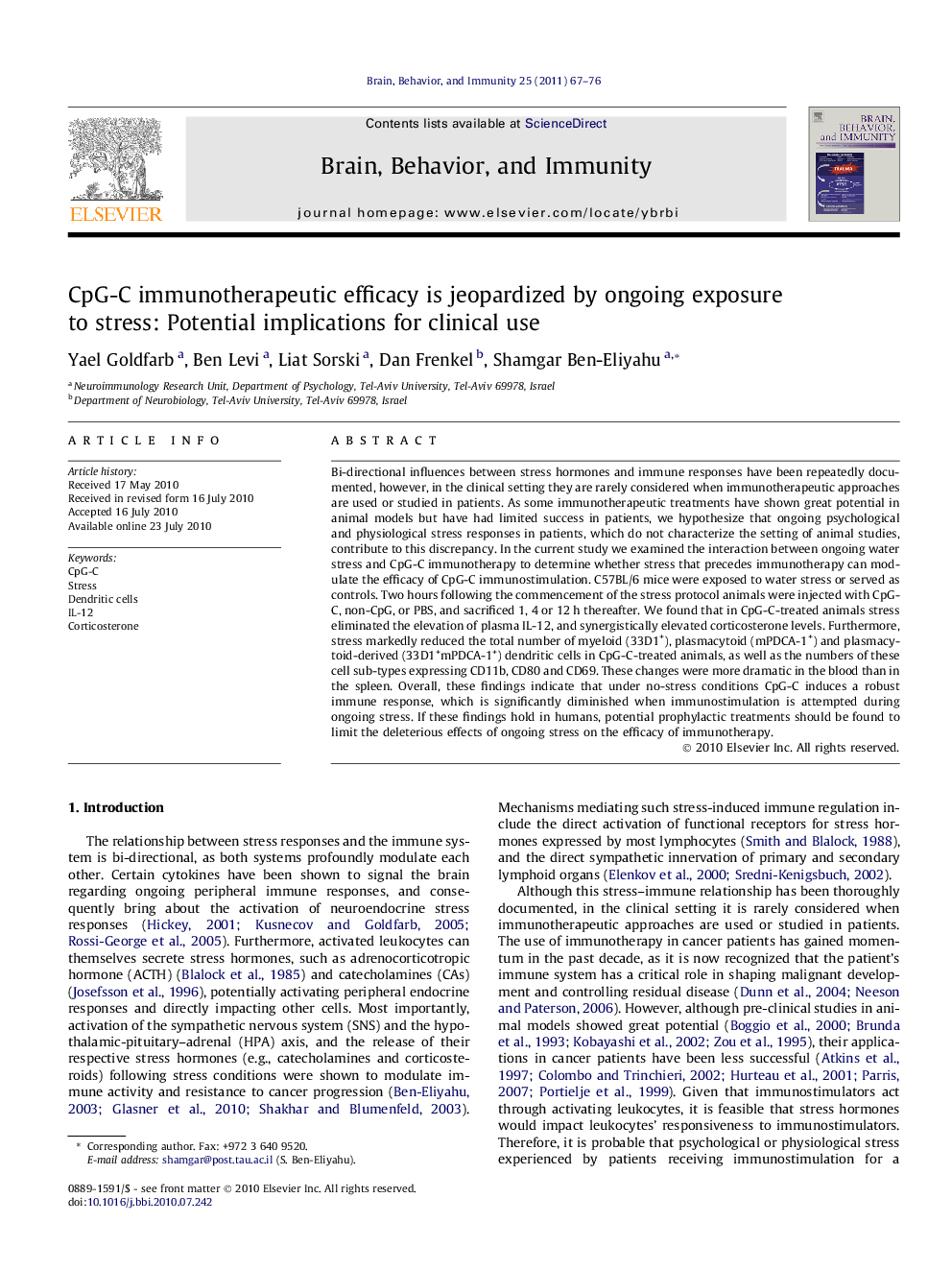| Article ID | Journal | Published Year | Pages | File Type |
|---|---|---|---|---|
| 922970 | Brain, Behavior, and Immunity | 2011 | 10 Pages |
Bi-directional influences between stress hormones and immune responses have been repeatedly documented, however, in the clinical setting they are rarely considered when immunotherapeutic approaches are used or studied in patients. As some immunotherapeutic treatments have shown great potential in animal models but have had limited success in patients, we hypothesize that ongoing psychological and physiological stress responses in patients, which do not characterize the setting of animal studies, contribute to this discrepancy. In the current study we examined the interaction between ongoing water stress and CpG-C immunotherapy to determine whether stress that precedes immunotherapy can modulate the efficacy of CpG-C immunostimulation. C57BL/6 mice were exposed to water stress or served as controls. Two hours following the commencement of the stress protocol animals were injected with CpG-C, non-CpG, or PBS, and sacrificed 1, 4 or 12 h thereafter. We found that in CpG-C-treated animals stress eliminated the elevation of plasma IL-12, and synergistically elevated corticosterone levels. Furthermore, stress markedly reduced the total number of myeloid (33D1+), plasmacytoid (mPDCA-1+) and plasmacytoid-derived (33D1+mPDCA-1+) dendritic cells in CpG-C-treated animals, as well as the numbers of these cell sub-types expressing CD11b, CD80 and CD69. These changes were more dramatic in the blood than in the spleen. Overall, these findings indicate that under no-stress conditions CpG-C induces a robust immune response, which is significantly diminished when immunostimulation is attempted during ongoing stress. If these findings hold in humans, potential prophylactic treatments should be found to limit the deleterious effects of ongoing stress on the efficacy of immunotherapy.
Research highlights► Stress interrupts CpG-C-induced production and secretion of IL-12. ► Stress reduces dendritic cell subtype numbers in CpG-C-treated animals. ► Stress reduces activation and maturation of dendritic cell subtypes. ► Stress effects on dendritic cells are more dramatic in the blood than in the spleen.
